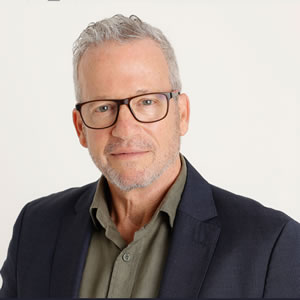Charles Lambert Podcast Transcript
Charles Lambert joins host Brian Thomas on The Digital Executive Podcast.
Brian Thomas: Welcome to Coruzant Technologies, home of The Digital Executive Podcast.
Do you work in emerging tech, working on something innovative? Maybe an entrepreneur? Apply to be a guest at www.coruzant.com/brand.
Welcome to The Digital Executive. Today’s guest is Charles Lambert. Charles Lambert is an entrepreneur, author, and technology strategist dedicated to building systems that help people and organizations operate and endure at their highest level.
As founder and CEO of Digital Life Box, Charles leads the creation of a secure SaaS platform that bridges physical, emotional, and digital worlds. Digital life Box empowers families, fiduciaries, and professionals to organize, protect, and pass on everything that defines them from digital assets and memories to identity and intent solving one of the most urgent challenges of modern life digital continuity.
Well, good afternoon, Charlie. Welcome to the show!
Charles Lambert: Hey, Brian. Thank you. Great to be here.
Brian Thomas: Absolutely, my friend. I appreciate it. And this is just amazing. I do a lot of international podcasts, but you’re based out of Spain. Today I’m in Kansas City and the cool thing is you used to be living the Kansas City area, which is, which is amazing.
It’s hard to catch up with folks from Kansas City as many podcasts as I do but I appreciate it.
Charles Lambert: Yeah, Kansas City has a, a great place in my heart. I’ve raised two, two sons there who are now adults and doing their own thing, and but had moved on after 20 something years in Kansas City. Went to Denver, Colorado for a while and a couple other places, and then decided to come out here to to Spain.
And I should say that I also have a beautiful five-year-old daughter here, so I’m getting to parent all over again, and it’s a blast. Keeps me very happy.
Brian Thomas: That’s awesome. Appreciate that. Well, Charlie, let’s jump right in. Digital Life Box seeks to bridge the physical, emotional, and digital worlds. Can you unpack what you mean by digital continuity and why you believe this is one of the most urgent challenges modern individuals and organizations face?
Charles Lambert: Yeah, absolutely. Brian. Before I tell you what it is, let me tell you how, kind of the founding story, how it came about, because it gives the, the proper context. One day my wife and I were sitting and talking and I was bragging to her about how well my crypto was performing. And in her Spanish accent and kind of jokingly, she said, Charles, there’s nothing less interesting about you than when you’re bragging about your crypto.
And she kinda laughed. I laughed, but then she said, but what happens if you die? Do I get it? And I said, ah, yeah. So now you’re interested, right? But that kind of led to the larger question of yes, of course we need to have a plan. Like with crypto there’s really no continuity built in.
You have to really take care and be responsible for your own continuity plan. Make sure that what you have is protected, but then also that the right people can get to it at the right time. We started talking about other things that I had. In my digital footprint, which I realized was huge, right?
I mean, it’s, when you think about your digital footprint, for me as an example 20 years ago when the internet was really kicking off and picking up, I said, I don’t really know where this is going, but I know I want to have Charleslambert.com. And so I got that. And like, years later now, I have over a hundred domains in my portfolio and they’re valuable.
If I don’t tell somebody about that, they’ll just poof that value is gone. Same thing with crowdfunding investments that I’ve done online through, things like StartEngine and Republic and these other platforms that allow you to invest in biotech and other kinds of up and coming companies.
And those may be, even though there are a few thousand dollars of investments at the beginning, they may be moonshots. Again, it’s value that we’ve put into digital accounts and digital accounts are exploding. And so when I looked at my own portfolio, I had over 200 accounts and many of them with significant value, including my iCloud account that has 20 something thousand photos of our family that don’t have financial value, but they sure do have a lot of sentimental value, and I wouldn’t want that to get lost.
My wife did the same thing, and we both said, our footprints are huge. We need to find a platform to help us make sure that we get this. And a spreadsheet, by the way, isn’t, uh, isn’t a platform. It doesn’t create a plan. And we couldn’t really find anything. So we set off to build what has now become digital life box.
So the your question was about continuity, digital continuity, and why? I believe that’s the most urgent challenges, I think is what you said. It’s because this the world is getting more and more digitized. There’s there’s some thoughts out there that the value of digital assets is going to equate and surpass physical assets.
Within the next 15 or 20 years, uh, you had a previous guest that talked about Digital Rights Management. A fascinating podcast by the way, but he talked about the future of digital rights management and that’s where the world is going. There’s it’s an explosion of digital assets that’s being created, and sadly, there are millions and billions, in fact, of digital organs being created every year.
And those are accounts that are basically. Left unintended when somebody passes away. So it just becomes a matter of control. Who’s gonna control your digital afterlife? Who’s gonna control those assets that you’ve developed, accumulated? And if you don’t do that yourself, they will simply vanish.
So Digital Life Box is a way to bring digital assets, digitized physical assets, because digitization of everything is the future. So digitized assets digital representations of your home. It could be your mortgage, your deed all of those kinds of things, all on the blockchain. So digitized versions of your physical assets, digitized versions of the people around you.
So, digitized versions of people. I know. My, my contacts, my handyman my doctors, all of those people. And then wrapping them all up on a platform where you can put them together in these bundles. So if something happens to me, I can say to my wife, here’s everything about our rental property. Here’s everything about our medical records.
Whether it’s the records, whether it’s about portals that you need to log into, whether it’s about contacts, doctors for this, doctors for that all of those things being put into one organized bundle so that you can either share in real time or you can transfer at various times, including on death.
Continuity also means that. I can use this platform to share with my family and loved ones, those things that are those things that are maybe important now. So if my son calls me up and says, dad, I really need a vacation. I can say, Hey, look, here’s some travel points. Boom. And I can send them from my wallet to his wallet over Digital Life Box’s platform.
So that’s continuity, right? It’s making sure things get from one generation to the next. In a world that is increasingly becoming more and more digitized.
Brian Thomas: That’s awesome. Thank you so much. And I love the backstory always do on these podcasts. The conversation with your wife, the crypto, and that light bulb went on, which I think is really cool.
And continuity or, or digital continuity is certainly key, and I liked how you broke apart the future digitized assets and how we can store that on the blockchain, which we’re built on the blockchain too, here at the, on the publication. So we’re pretty excited. So thank you.
Charles Lambert: Yeah, I saw that Brian, I, I knew that you had a, an affinity toward blockchain. And there’s a reason we chose blockchain. It’s because, again it’s the safest place. It’s where technology is going. We don’t know where it’s gonna go. In 10, 15, 20, 30 years, a hundred years from now digital Life Box was built with flexibility in mind. But right now, the blockchain is, is the next the next big thing and the next safest thing for us.
Brian Thomas: That’s amazing. Thank you again. And Charlie, you’ve spent over two decades appetite advising enterprises on operational maturity and resilience, and now you lead a deeply personal SaaS venture around identity, memory, and legacy. How did your past and IT operations and transformation inform the idea and execution of Digital Life Box?
Charles Lambert: Hmm, good question. I think if you look back. There are parallels in both in both ventures. So in my previous corporate life I’ve been in and out of corporate life doing consulting work or self-employment or being an employee of companies. But in the last, let’s say 15, 20 years, I’ve been all around all about IT operations.
Within technology operations. Really what that is, is continuity of the business, right? You wanna make sure your systems are up. Within the SLA, you have right, five nines or something like that. You wanna make sure that if there’s a disaster that the business can continue. All of those things that fall under IT operations, all of those things that I’ve been responsible for.
It’s just a this is just a continuity. So I think that’s the thread. That that ties these things together. It’s just that being able to say, Hey we’ve, we’ve got something. We’ve built something our customers need it, our families need it, so let’s make sure that they’re built on platforms of resilience and that they’re available for our customers when they need it most.
Brian Thomas: That’s awesome. And I like that you took your background. Obviously you’re very smart, you’ve got all these great ideas, but you took your background in it, operations resiliency, liability, all that and carried it right over into this business, which is a total parallel, and I totally like it.
And that’s why we talk a lot about the blockchain. We probably had about 80. CEOs on the podcast that are in the blockchain space or crypto space in some form or another. So we’re pretty excited. So Charlie,
Charles Lambert: Brian. Yeah. Let me just add one more thing to that. So I was recently at a, at a convention called the European Blockchain Convention, and it was a big coming out party for the Digital Life box.
And what I noticed was there are super intelligent, smart people in blockchain and the, the user interface though was often. Very difficult if I kind of have a feeling that it’s engineers building for other engineers. And also it was very institutionalized, right? Like moving big kinds of financial value via stable coins or other kinds of things from this institution to that institution to that you know, various platforms and such and.
The response that we got about Digital Life Box was, first of all, people were saying, I would have had no idea that this was built on digital wallets, NFTs and smart contracts on the Ethereum blockchain. I’ve heard comments, many comments that were something like, you are bringing humanity to the blockchain and we love it.
I heard one person say, this is the best consumer application I’ve ever seen on blockchain. So we’re very, very, very happy with the way we’ve been able to kind of. Create this Web two experience, but build it on Web3. It’s a, it’s a credit to the team around digital Life box.
Brian Thomas: That’s awesome. Thank you.
Charlie, you’re the author of Endurance Executive and Corporate Ladder 1 0 1. How do these themes in your writing, resilience, leadership purpose map into the product you’re building? How do you keep your own purpose aligned with a business with so emotional weight?
Charles Lambert: Well, those books are actually.
Reflections again, everything has a, an origin story and each of those books has an origin story in my life, just like Digital Life Box does. Corporate Ladder was written at a time when my sons who are now in their thirties were actually teenagers, but I saw them as being the next leaders future leaders, and I started writing them these letters.
Like, how happy should you get at happy hour? And the importance of saying thank you and owning your own stuff, right? Like, don’t lie. And so I started writing them these letters and then somebody said to me, Hey, you know what? You should actually do more of these and put them in a book.
And so I did. And that became corporate letter 1 0 1. It’s really, it is a very personal set of letters that I’ve put into ba basically to my son, but I fashioned them into into a book and in storytelling type format. And so corp, that’s what corporate letter 1 0 1 is. Then for the Endurance executive, I, found triathlon some time ago and I became an, a very active triathlete. And during those moments when you’re on the bike or you’re on a long run or you’re swimming in a pool and you’re looking at a black line for an hour a lot of thoughts happen and a lot of ideas pop. And so endurance executive was really then the reflections that I had of how a career and how your work life.
Isn’t a sprint and you have to look at the things you do, those accomplishments you’re trying to achieve. On the longer on longer scale, right, an endurance scale and how you have to endure. You have to have the right team, you have to right the right training, you have to you have to fuel yourself properly not only mentally, but physically, uh, and so forth.
And, and that’s to be successful in, in both. You have to work through your quitting point because in every single time you’re in a, you’re in a triathlon or some kind of a race like that, or even training you say, man. I just wanna be done with this. But you have to take that next step. You have to, you just have to keep going and keep going because that’s where success is.
Success is right on the other side of that point where you want to quit. So it’s the same thing with with the business I’m in now, right? I mean, startup life is different than a corporate life. You get when you’re trying to like maybe raise money or something like that, you get.
Punched in the nose a few times by people who are much smarter than you. You learn what you know, you learn what you don’t know. You learn what you want to focus on. You learn what the priorities need to be. And then, you’re out talking to customers and where you think it’s a really great idea, they’re like, nah.
And you know, talk to ’em a little bit more and they’ll say I don’t like that idea, but if you did this, it would be amazing. And so it’s really just taking that same thing that the same life experiences. And pouring them into something that is very, very, very important. And, you talked about emotional weight.
The reason why I’m so passionate about Digital Life Box is, um, because, you know, at this point in my life, I could have just retired, right? I mean, I, many of my peers are saying, Hey, let’s go play golf. Which is fine. But I, I mean, I didn’t set out to, to create another like social network platform. I really wanted to solve a world problem, which I believe is the continuity of digital assets.
And you know, let’s face it, Brian, many people have that story of somebody who died or who passed away leaving a mess behind for somebody to untangle, whether it’s in legacy type assets, like, man, we had no idea where the, the documentation was the insurance and all that stuff, but it’s even more acute when it comes to digital assets, right?
So, so this is a problem that I knew I had, my wife and I had, and it’s a problem that needs to be solved globally. It’s a trillion dollar problem that needs to be solved globally, and I’m very passionate about it because it does come with a lot of emotion. I had a friend of mine who said. You know, we were catching up one day and she told me the sad story about her sister dying very suddenly.
She had a two week notice and then she, she was gone. And she told me that during those two weeks of her life, and I, it’s hard for me to get through this without kind of welling up, but she said that those last two weeks of her sister’s life were spent gathering all of this kind of stuff and organizing instead of spending it with your two small sons.
And that’s, that’s really, that’s motivating for me. I don’t want anybody to have to go through that anymore. You know, my, my friend told me she would’ve paid 3, 4, 5 times what we’re charging just to give her sister those two weeks back. And yeah, it is a lot of emotional weight, but man, it’s like, it’s what drives me.
What gets me up every day to say, we’ve gotta save people. I know it sounds a little dramatic. But man, when you’re dealing with the whole administrative aspect and loss of death of a loved one you know, the sudden and unexpected loss of a loved one, it’s the last thing you wanna do is say, man, how do I get, how do I get into his stuff? Or her stuff, right? Yeah, that’s, that’s how I keep my purpose aligned with this business. Sorry for welling out it there.
Brian Thomas: No, no.
Charles Lambert: Kinda lost my voice there.
Brian Thomas: Thank you so much. I appreciate it. That’s what makes the podcast so special to me and to my audience. But at the end of the day, and that’s a powerful story.
You’re bringing a solution to a real world, a big world problem. You’re helping humanity, and I think that’s amazing. And just to highlight your books certainly made a lot of sense. Your corporate Ladder 1 0 1, a book that had purpose and meaning about life lessons you taught your sons, you, you learn from it as well.
And that the endurance executive fuel your career, your life, keep going. And as we all know, success is just on the other side of that point where you want to quit. And we’ve all been there. So I, I appreciate that. And Charlie, last question of the day. If you could briefly share, looking forward maybe 10, 20 years, how do you imagine the field of digital continuity evolving?
What role would you like Digital Life Box to play in how society treats memory, identity, and digital inheritance? And what legacy do you wanna leave?
Charles Lambert: So 10 to 20 years, I’ve already mentioned that the trend of, of life is the digitization of of everything, not of life. But, you know, the, the big trend in this space is that everything is gonna be digitized.
Larry Fink, who is the chairman of Blackstone, I think Blackstone anyway, one of the largest financial institutions in the world. Recently said that everything, every asset, stocks, bonds, everything is going to be digitized and tokenized over the next few years. It’s the future. So, you also had your guest that talked about digital rights management.
Again, a fascinating podcast and I, I ask, I, I suggest everybody go back and listen to it. But he was talking about, the things you own. When, if Pokemon or whoever’s kind of coming in and, and using your, something you own to make money off of, then you should have some rights to that use of that digital use of your property, of your likeness, of something that you own.
So that’s the world. That’s where it’s going. Digital continuity must exist, must evolve. To be able to capture those assets and to have a way of passing them from the current owner to the next generation, to the loved ones, sharing those things. I expect Digital Life Box and others who are gonna come into this space as well because it’s a big world.
And people are kind of sensing this already. And so, you know, people are trying to solve for this problem. But I see that digital life box. Is gonna play a key role in making sure that these big questions have solutions and that you know, that our own memories are actually preserved in the process.
I’ll give you an example. For Digital Life Box I mentioned I have a, a daughter. My wife and I have created a Gmail account for her, even though she’s five. We send little notes and photos every once in a while and we send it to that account. My daughter has a digital life box of her own and when she is 15, there’s a smart contract that’s already out on the Ethereum blockchain that when she turns 15, she’s going to receive this, the credentials to this Gmail account.
When she gets this email, it’s gonna have a letter from me and it’s a deeply personal letter. Again, I’m getting emotional, but it’s a deeply personal letter from me to her about why we did that. And Brian, she’s gonna get that letter whether I’m there or not. That’s the power of digital life box and digital continuity.
It’s to make sure that my memory. That the memories of those important people to her in her life and the things that we’ve accumulated in that are important to us are passed along in a way that, keeps the memory alive, right? Keeps continuity alive. And so, yeah, that’s, that’s the legacy I wanna leave and I wanna provide that for, really for every family in the, in the world.
We’re getting interest from people in Africa and Central America places where they’re underserved, where they don’t have systems in place that they trust ’cause they wanna share in this legacy as well, and I can’t wait to deliver it.
Brian Thomas: Thank you so much. Very powerful podcast today. For sure. I just love it.
You’ve got such good use cases where people can all resonate with this. Digital continuity must exist in this new digital world we’re building. And the, the story about your daughter in the Gmail account that is very powerful and anybody that’s listening definitely has to invest in this.
For sure. Charlie, it was such a, you’re welcome. It was such a pleasure having you on today, and I look forward to speaking with you real soon.
Charles Lambert: Brian, the pleasure was mine. And thank you so much for having me.
Brian Thomas: Bye for now.
Charles Lambert Podcast Transcript. Listen to the audio on the guest’s Podcast Page.











